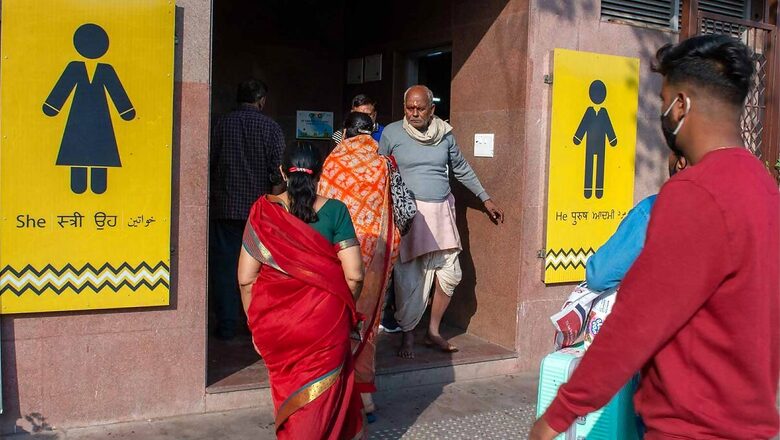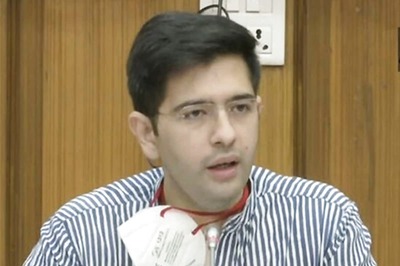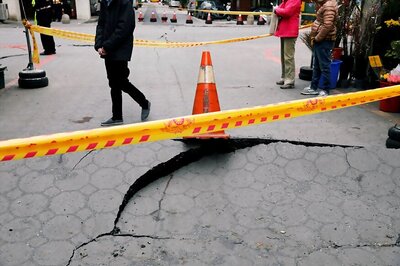
views
India makes for an excellent case study for sanitation literacy done well. In just the last 5-8 years, we’ve seen a tangible difference in how we experience our nation: whether it is in crowded tourist destinations, or long road trips, or even on our way to work. Not only are our spaces visibly cleaner than before, but our access to clean and well maintained toilets has increased by leaps and bounds.
How did this happen? How did we communicate not only to the educated and apartment dwelling populace, but the larger segment that, till only a few short years ago, lacked basic sanitation facilities? How did we make sanitation a national topic of conversation, and begin to pride ourselves in making India a clean nation?
The Swachh Bharat Mission bears a lot of the responsibility. In addition to constructing millions of toilets, the mission also embarked on a strong communication campaign that encompassed everything from speeches by the PM himself, to celebrities leading cleaning drives, to more typical forms of communication like posters, TV advertisements, and social media posts.
At the 2019 Kumbh Mela at Prayagraj, in an unprecedented gesture, PM Narendra Modi washed the feet of five sanitation workers, hailing them as Karma Yogis and expressing his gratitude for their service. This symbolic act sent a powerful message to the entire nation that sanitation workers are an essential part of society and their work needs to be recognized and respected.
Brands like Harpic, which is a leader in the lavatory care segment, have built strong communication strategies around the need for good toilet hygiene habits in particular, and sanitation overall. Harpic decided to take the lead in the sanitation and hygiene movement by creating innovative, thought provoking campaigns and outreach programs. They partnered with Sesame Workshop India, an educational non-profit working for the early developmental needs of young children, to promote positive sanitation, hygiene knowledge and behaviours among children and families through schools and communities, engaging with 17.5 million children across India. This, in addition to the messaging they already aimed at adults.
Moreover, when the Covid-19 pandemic struck, the GoI and brands were able to use these established channels of communication to stress the importance of handwashing and sanitisation, and its link to the spread of Covid-19. This further cemented the link between health, disease, immunity and hygiene in Indian minds. In many ways, Indians were ready to receive these messages and follow the advice given, because of the pioneering work done by the GoI during the Swachh Bharat Mission.
What did the GoI do differently?
The Swachh Bharat Mission is considered to have been the world’s largest sanitation programme, which had high-level political support and catalysed a mass movement that engaged government, households and the private sector. It also used community-led methodologies that focused on behaviour change for better sanitation.
According to a report of the Sub-Group of Chief Ministers on Swachh Bharat Abhiyaan, behavioural change is an area of continued focus. The Behaviour Change Communication (BCC) strategy includes measures like:
- Involving political and social/thought leaders, celebrities and media houses to spread the message of the importance of cleanliness and sanitation.
- Extensive media campaigns in the form of electronic, web and print to be used for conveying messages and encouraging the people to pay for usage of public toilets for their sustainability.
- Advocacy of the concept of three R’s: Reduce, Reuse and Recycle.
- Communications to ensure that cleaning occupations must be seen as dignified work and widely respected.
The Sub-Group of Chief Ministers also came up with an education strategy that encompasses several key measures:
- Inculcating sanitation practices in children by including a chapter in the school curriculum from the first standard itself.
- In each school and college, a team of students may be formed which will be called the ‘Swachhata Senani’, to spread awareness about sanitation and cleanliness
- Skill Development courses/ Diploma courses may be introduced in State ITIs and polytechnics/ colleges to train personnel in the field of solid and liquid waste management.
- Specialised courses on Environmental Sciences, Public Health Engineering and Municipal Engineering with focus on sanitation and waste management may be introduced at undergraduate and postgraduate level.
- Joint Research Programmes with foreign universities/higher educational institutions would enhance knowledge and capacities to work on waste management technologies.
The best part: It’s not just the GoI
We were also extremely fortunate that in India, brands also took up the mantle of sanitation communication. Harpic, in addition to creating programming aimed at young children, also pioneered a programme to raise awareness and reinforce healthy toilet and bathroom habits among young children, developing and recognising them as “Swachhta Champions”. These initiatives are a part of the larger umbrella campaign, Harpic Mission Swachhta and Paani, with News18.
Mission Swachhta aur Paani is a movement that upholds the cause of inclusive sanitation where everyone has access to clean toilets. It advocates equality for all genders, abilities, castes and classes and strongly believes that clean toilets are a shared responsibility. As a part of this campaign, they organised workshops in several schools to discuss good sanitation practices, and the numerous ways in which these simple practices could add (healthy!) years to their own lives and those of their families. These were named Swachhta ki Paathshala and engaged celebrities like Parineeti Chopra and Diya Mirza to lend their voices to this message. This year’s Paathshala workshops will include Shilpa Shetty, Kajal Agarwal, News18’s own Marya Shakil and several others.
To mark the occasion of World Health Day on April 7th, Mission Swachhta aur Paani are bringing together policy makers, activists, actors, celebrities and thought leaders with a panel from News18 and Reckitt’s leadership to address behavioural change on toilet use and sanitation, and how people from all walks of life can help further the cause.
The event will feature a keynote address by Reckitt leadership, interactive Q&A sessions, and panel discussions. The speakers include Union Minister of Health & Family Welfare, Mansukh Mandaviya, Deputy CM of Uttar Pradesh, Brajesh Pathak, Director of External Affairs & Partnerships, SOA, Reckitt, Ravi Bhatnagar, UP Governor Anandiben Patel, actors Shilpa Shetty and Kajal Aggarwal, Regional Marketing Director of Hygiene, Reckitt South Asia, Saurabh Jain, sportsperson Sania Mirza and Padma Shri S. Damodaran, Founder of Gramalaya, among others. The event will also feature on-ground activations in Varanasi, including a visit to Primary School Naruar and a ‘Chaupal’ interaction with sanitation heroes and volunteers.
To know more about how you can play a part in this national conversation, join us here. A Swachh Bharat and a Swasth Bharat is within our reach, with a little help from you.
Read all the Latest News here



















Comments
0 comment